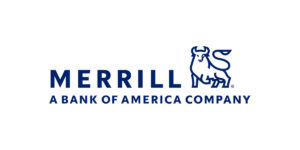De amerikanske aktiemarkeder havde i går deres værste dag siden foråret – med et kursfald på 2 pct. Årsagen ligger i stigende renter den seneste tid, frygt for en kraftigere inflation og frygt for højere skatter. Men det spiller også ind, at strid i Kongressen kan føre til, at staten ikke får de nødvendige bevillinger til at betale løn og øvrige udgifter. Finansminister Janet Yellen sagde i går, at hvis bevillingerne ikke godkendes inden tre uger, kan det føre til en alvorlig skade for økonomien.
US STOCKS-Wall Street swoons on rising Treasury yields, growing inflation worries
Wall Street stocks ended sharply lower on Tuesday in a broad sell-off driven by rising U.S. Treasury yields, deepening concerns over persistent inflation, and contentious debt ceiling negotiations in Washington.
All three major U.S. stock indexes slid nearly 2% or more, with interest rate sensitive tech and tech-adjacent stocks weighing heaviest as investors lost their risk appetite.
It was the S&P 500 index’s biggest one-day percentage drop since May, and the Nasdaq’s largest since March.
The S&P 500 and the Nasdaq Composite index were on track for their largest monthly declines since September 2020.
“The big picture is the sudden surge in the past week of yields, which has led to a ‘sell first, ask questions later’ mentality,” Ryan Detrick, senior market strategist at LPL Financial in Charlotte, North Carolina.
“(But) there are multiple factors weighing on sentiment today,” Detrick added. “The back-and-forth in Washington with the debt ceiling and the spending bill and potential higher taxes have weighed on overall investor psyche and has led to a pretty good sized sell-off.”
The benchmark index was also setting a course for its weakest quarterly performance since the COVID pandemic brought the global economy to its knees.
Weakness pervaded across most asset classes, including gold, suggesting widespread risk-off sentiment.
U.S. Treasury yields continued rising, with 10-year yields reaching their highest level since June, as inflation expectations heated up and fears grew that the U.S. Federal Reserve could shorten its timeline for tightening its monetary policy.
Treasury Secretary Janet Yellen said she expected inflation to end 2021 near 4% and warned lawmakers their failure to avert a government shutdown as the nation moves closer to exhausting its borrowing capabilities could cause “serious harm” to the economy.
Senate Republicans appeared set to strike down Democrats’ efforts to extend the government’s borrowing authority and avoid a potential U.S. credit default.
A Conference Board report showed consumer confidence weakened unexpectedly in September to the lowest level since February.
The Dow Jones Industrial Average fell 569.38 points, or 1.63%, to 34,299.99; the S&P 500 lost 90.48 points, or 2.04%, at 4,352.63; and the Nasdaq Composite dropped 423.29 points, or 2.83%, to 14,546.68.
Half of the S&P 500’s components closed 10% or more below their 52-week highs. That included 63 stocks that had fallen 20% or more.
Among the 11 major sectors of the S&P 500, all but energy ended red, with tech and communications services suffering the steepest percentage losses.







